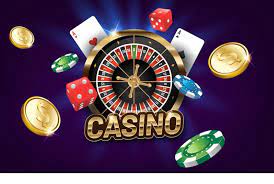Betting has been a part of human history for millennia, evolving from simple wagers pixiubet friends to a global industry worth billions of dollars. From ancient civilizations to the digital age, betting has maintained its appeal due to its inherent excitement and the possibility of great rewards. But what exactly is betting, how did it evolve, and how does it impact society today? This article delves into the origins, transformation, and influence of betting in the modern world.
What Is Betting?
At its core, betting is the act of risking something of value—typically money—on the outcome of an event or a set of circumstances. The person who places the bet, known as the bettor, predicts a result and stakes their resources, hoping to benefit from a favorable outcome. If the prediction proves correct, the bettor wins; otherwise, they lose their stake.
Betting can take many forms, such as wagering on sports events, playing casino games, or even betting on the outcome of political elections. It can be done informally, with friends and family, or formally through regulated betting platforms like sportsbooks or casinos.
The Origins of Betting
The origins of betting date back thousands of years, with evidence of early forms of gambling found in ancient civilizations. The Chinese, for example, are believed to have created the first known lottery system around 2300 BCE. Similarly, ancient Egyptians, Greeks, and Romans enjoyed various forms of gambling, often tied to religious ceremonies or public festivals.
The Romans, in particular, are famous for their betting practices, which included dice games, chariot racing, and gladiatorial combat. Roman emperors even organized public betting events, where citizens could gamble on outcomes, with the state often taking a share of the profits. This helped lay the groundwork for the later development of more formalized gambling systems in Europe.
The Evolution of Betting
As time progressed, so did the sophistication of betting. By the Middle Ages, betting had become more structured, with the first modern casinos emerging in Italy during the 17th century. These establishments offered a wide range of games, including card games, dice, and roulette, drawing wealthy patrons and aristocrats. Casinos quickly spread across Europe, with cities like Monte Carlo, Paris, and London becoming gambling hotspots.
In the 19th century, betting on horse racing became incredibly popular in Britain, giving rise to the first legal betting establishments, such as betting shops and bookmakers. These establishments provided a formalized system for placing bets on horse races, which eventually led to the creation of the modern sportsbook.


